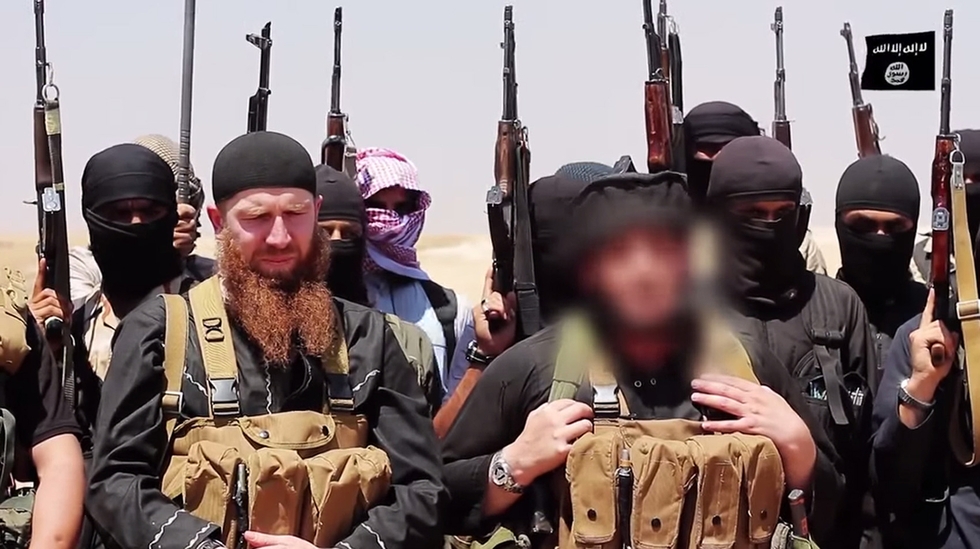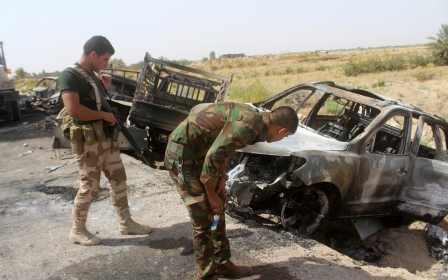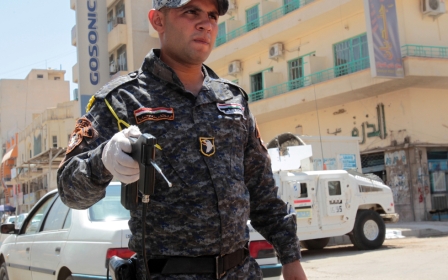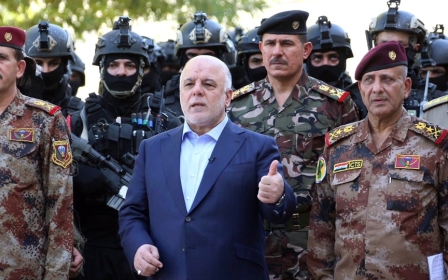IS media confirms death of 'minister of war' al-Shishani in Iraq

Islamic State group's military leader Omar al-Shishani, a veteran of the Chechen war famous for his red beard, has been confirmed dead in Iraq by IS media months after US forces said they killed him in an air strike in Syria.
A fierce, battle-hardened warlord with roots in Georgia, al-Shishani was one of the most notorious faces of the group.
On Wednesday, the IS-linked Amaq agency said Shishani, 30, was killed in the Iraqi town of Sharqat, north of Mosul - details at odds with a previous announcement from the Pentagon that he had died of wounds received in an air raid in Syria in March.
Citing a "military source," Amaq said Shishani was killed "in the town of Sharqat as he took part in repelling the military campaign on the city of Mosul," referring to the last IS-held city in Iraq.
Shishani, whose nom de guerre meant Omar the Chechen, was one of the IS leaders most wanted by Washington which put a $5 million bounty on his head.
His exact rank was unclear, but a US official had termed him the "equivalent of the secretary of defence" for the militant group.
Tweet showing screenshot from IS-aligned Amaq agency. Text: "#Amaq_agency: Military leader (Omar al-Shishani) has been killed in battles in al-Sharqat." Picture: “A military source to Amaq agency: Sheikh Omar al-Shishani has been martyred in the city of al-Sharqat during his participation in repelling a military campaign against the city of Mosul.”
Shishani, real name Tarkhan Batirashvili, came from the Pankisi Gorge region that is populated mainly by ethnic Chechens.
He fought as a Chechen rebel against Russian forces before joining the Georgian military in 2006, and fought Russian forces again in Georgia in 2008.
He resurfaced in northern Syria in 2012 as the leader of a battalion of foreign fighters, according to Aymenn al-Tamimi, research fellow at the Middle East Forum, a US think-tank.
As early as May 2013, when IS was just emerging in Syria, he was appointed the group's military commander for the north of the country, Tamimi said.
Richard Barrett of the US-based Soufan Group described Shishani as IS's "most senior military commander" who had been in charge of key battles.
The loss of the commander is a blow to the group, which has suffered a string of setbacks in Iraq this year.
IS overran large areas north and west of Baghdad in 2014 but has since lost significant ground to Iraqi forces backed by US-led air strikes, training and other assistance.
Baghdad declared victory in the city of Fallujah, west of Baghdad, at the end of June, leaving Mosul as the sole Iraqi city held by IS.
The Sunni militant group has responded to the battlefield setbacks by striking civilians, particularly Shia, and experts have warned there may be more bombings as IS continue to lose ground.
IS ‘conceals the real leaders’
He also had "the loyalty of Chechen fighters who are considered by ISIS as elite troops," Barrett told AFP earlier this year.
Shishani was not, however, a member of IS's political leadership, a structure that is even murkier than its military command.
A profile of Shishani written by an IS supporter and posted online described him as "one of the best strategic and tactical leaders".
He was born in 1986 to a Christian father and a Muslim mother, according to the text, which claimed he "never lost any of his battles".
In an indication of Shishani's popularity among sympathisers, the text described him as "the new Khalid Ibn al-Walid" - a reference to a leader from the early days of Islam who played a crucial role in spreading the nascent religion in Syria and Iraq.
But some downplayed Shishani's importance.
"He was a fierce fighter," according to Rami Abdel Rahman, director of the Britain-based Syrian Observatory for Human Rights, which monitors the Syrian conflict.
"He would be sent to frontlines across IS-held territory," he said.
But his death "won't have an actual impact on the battlefield. There are many other leaders," he told AFP back in March.
"IS chooses which faces to make known in the media - while it conceals the real leaders."
Middle East Eye propose une couverture et une analyse indépendantes et incomparables du Moyen-Orient, de l’Afrique du Nord et d’autres régions du monde. Pour en savoir plus sur la reprise de ce contenu et les frais qui s’appliquent, veuillez remplir ce formulaire [en anglais]. Pour en savoir plus sur MEE, cliquez ici [en anglais].




